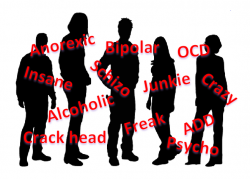Are Free Methadone Clinics too Good to Be True
In an effort to streamline methadone therapies with medical and mental health treatment practices, free methadone clinics are not what they used to be. Whether the person chooses detoxification using methadone or a methadone maintenance program offered through a methadone clinic, the quality of care regardless of cost is of upmost importance to the addict, the medical community, and common society.
Because many of these individuals lack the ability to pay, there have been a multitude of increased funding methods to offset the patient costs, making the treatment free to those who need it the most. That hasn’t decreased their effectiveness, however.
In 2001, changes to the methadone treatment programs were made to improve access and effectiveness by transferring the oversight of Opioid Treatment Programs (OTPs) to the Substance Abuse and Mental Health Services Administration (SAMHSA) to ensure standards involving best practice guidelines and quality of care for the treatment of opiate addictions.
Overcoming Stigmas

The first step to recovery is overcoming stigmas about Methadone clinics.
Many people have felt that enrolling in a methadone therapy program is a little too drastic due to the stigmas that have been attached to these programs and the negative images of those who use these services. Today, it is a well known fact that opioid addictions can happen to anyone, including those may have been exposed to opioids through a legitimate prescription for pain.
It happens all the time and in every community and the efforts to destigmatize methadone therapies is an ongoing process. Advocates recognize that the use of methadone in these treatments remains the most proven and effective for millions of people who have failed prior attempts to reduce or eliminate their opioid dependence and for many, who have undergone other professional treatments.
Recognizing Opioid Addiction
Opioid dependence and opioid addiction are not the same. A person can be dependent on opioids without being addicted. They will still suffer unpleasant withdrawals if they suddenly reduce or cease the opioid use, but, cravings to relapse after detoxification is not sufficient for them to resume use.
An opioid addict, however, will go through many cycles of intoxication and withdrawals, using opioids, despite the harm they cause themselves or others. As their disease progresses, they become less able to quit using opioids even when facing dire consequences and/or losses because of their use. They struggle more with daily accomplishments and the overwhelming need to consume higher doses of the drugs, more frequently, as their tolerance and dependency increase and the withdrawal severity increases in tandem.
According to a Harvard Medical School, Harvard Health Publication, “Opiates are outranked only by alcohol as humanity’s oldest, most widespread, and most persistent drug problem.” The addict will probably relapse multiple times before they come to any conclusions that they may need professional help and often they feel that, even that will not work. So, they resign themselves to the hopeless drug seeking behaviors and use as a part of their everyday life.
What Is a Methadone Maintenance Program?
Methadone maintenance programs have a long history of outcome success and in response to the overwhelming rise in opioid dependent individuals they have been overhauled to provide the most comprehensive care along with the dispensing of methadone.
The treatments are based on the premise that opiate addiction is a chronic brain disease, requiring practices and principles fundamental to effective, long-term, comprehensive treatment much like other chronic illnesses require long term treatment to manage their relative conditions or to prevent reoccurrence of problematic symptoms.
Methadone maintenance programs help the addict refrain from illicit opioid use by administering appropriate doses of methadone to reduce the cravings for other opioids and blocking their effects for 24 to 36 hours, reducing the dependence to shorter acting opioids. They combine this pharmacological therapy with counseling, medical, and rehabilitative services intended to help patients become and/or remain productive members of society.
What is Methadone Detoxification
Using methadone to relieve cravings and withdrawals is an elemental traetment in methadone clinic. Deox treatments using methadone can be accomplished over a matter of several days with a gradual tapering off of the drug after dependency to the short term opiates such a heroin, morphine, or other prescription painkillers is reduced.
According to the Substance Abuse and Mental Health Services Administration, “Federal regulations allow for the use of methadone in both a short-term detoxification treatment of less than 30 days and a long-term treatment of 30 to 180 days. The regulations also specify that if a patient has failed two detoxification attempts in a 12-month period he or she must be evaluated for a different course of treatment (e.g., ongoing opioid substitution therapy).”
Who Pays For Treatment?
According to the National Survey of Substance Abuse Treatment Services (N-SSATS): 2013, “More than half (57 percent) of clients receiving methadone were in private for-profit facilities with OTPs.” Many of these individuals were unemployed, lacked health insurance, or had a combination of issues for which they were considered relatively indigent.
Paying for treatment then becomes an issue for the facilities to secure funding through other sources to help them maintain their abilities to provide the free services. In order for the facilities to continue receiving funding from these sources, they must comply with regulations and treatment protocols set forth in the agreements to provide appropriate and quality care that may involve monitoring the rates of successful treatment outcomes as positive confirmations of compliance.
The most common forms of funding for these free programs are:
- Federal block grants
- Private foundations and funds, such as United Way
- Medicaid
- State funding
- Community or local sponsorships
- Social Service Providers
- Medicare and Supplemental Security Income (SSI) for disabled clients